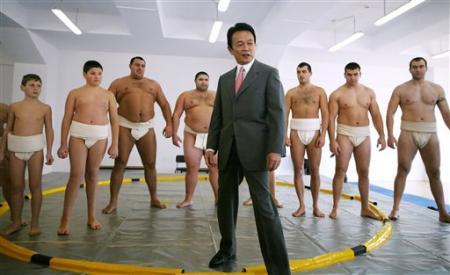Wages remain stagnant in Japan, and are even declining, even as the economy improves. TransPacificRadio’s Ken puts it well:
Certainly, Japan is in its longest period of post-war economic growth. That said, the current ‘boom,’ if it can be called that, has returned 2-3% annual gains in GDP. Further, the recovery has been fueled by capital expenditure. This means that corporations are the ones spending the money, not consumers. Consumer spending has remained flat in Japan, and it accounts for 50% of GDP.
There are those who have argued for interest rate increases by claiming that a rate hike would provide a better return on savings accounts. This, of course, is disingenuous. Current returns are next to nil; even doubling the prime rate from 0.25% to 0.50% would mean little in the way of returns on savings accounts. It would, however, mean substantial increases in terms of mortgages, business loans and automobile loans.
Plenty of experts have wondered why consumer spending has yet to increase in Japan. Yet, the reason seems obvious: wages declined by about $4,000 on average per worker from 1995-2005 and then increased by about $400 per worker over 2006. Given that two recent effective tax hikes have taken place, in January 2006 and January 2007, the average worker in Japan simply has less money.
The bigger questions would be: Why haven’t companies been able to increase wages during this period of supposed economy recovery?
PESEK has your answer, Ken:
Abe’s predecessor, Junichiro Koizumi, changed the tone in Tokyo, forcing the need to upgrade an antiquated economic model on change-resistant politicians. Yet Koizumi, who stepped down in September, was a transitional figure. It was always up to his successor to accelerate and broaden efforts to modernize the economy. So far, Abe is failing in this regard.
That can be seen partly in how households aren’t increasing consumption as you would expect by this stage in an expansion. If households had more confidence in the outlook, they might spend more. If consumers trusted politicians to increase GDP or shore up the national pension system, people might save less.
The thing is, foreigners are far more excited about Japan’s recovery than the average Japanese citizen. That’s a problem, considering that the only way for this revival to gain momentum is by increased household spending. Exports can only get Japan so far; domestic demand is a more important dynamic at the moment.
Without faster growth and fatter paychecks, Japan will be hard-pressed to restore fiscal sobriety. Abe is right to want to reduce Japan’s reliance on debt for growth, yet the government’s plans to increase consumption taxes may backfire. The same goes for central-bank policy makers anxious to raise rates. Doing so might damage Japan’s recovery.
Abe’s task is a tall one. A key reason Japan isn’t booming as hoped is that it, like other rich economies, is increasingly facing the dark side of globalization. High-cost nations are being pressured as rarely before by fast-growing developing ones. That competition is reducing the willingness of Japanese executives to boost wages.
Combating that dynamic is a long-term process. It includes increasing productivity among current workers and encouraging more start-up companies to create new jobs. The effort would have a greater chance of success — and its benefits would kick in sooner — if Abe were focused on it. What’s more, Abe needs to improve his public-support rating if he’s going to have clout to build on Japan’s successes of recent years.
PESEK’s somewhat grim recommendations to avoid “economic booms that the average citizen doesn’t benefit from” (my convoluted and liberal translation of “jikkan dekinai keiki”) — a long-term process of productivity boosting and job creation — will assuage the concerns of neither workers nor powerful, large corporations, who both want security, in the forms of stable career paths and guaranteed profits, respectively.
These competing interests are coming to blows in recent days, as the government’s plans to submit a bill that would create a “white collar exemption” — meaning office workers who earn 4 million yen or more (or 9 million depending on what the final bill looks like) annually could no longer be eligible for overtime — have come under intense criticism.
Continue reading “White Collar Exemption” and the danger to the LDP



